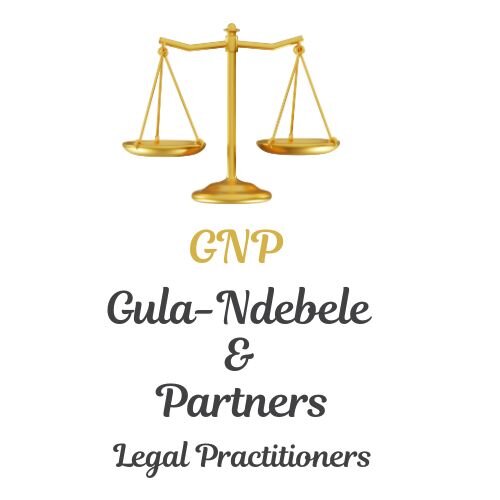Best Employment & Labor Lawyers in Bulawayo
Share your needs with us, get contacted by law firms.
Free. Takes 2 min.
List of the best lawyers in Bulawayo, Zimbabwe
About Employment & Labor Law in Bulawayo, Zimbabwe
Employment and labor law in Bulawayo, Zimbabwe, is governed predominantly by national legislation that applies throughout the country, with the key legal instrument being the Labour Act [Chapter 28:01]. This law sets the foundation for all employment relationships, covering contracts, wages, working conditions, job security, dispute resolution, and termination of employment. Bulawayo, as Zimbabwe's second-largest city and industrial hub, has a diverse workforce encompassing formal and informal sectors, making employment and labor law a significant area for both workers and employers. Labor regulations seek to balance the rights and duties of employees and employers, ensure fair treatment, and manage workplace disputes efficiently.
Why You May Need a Lawyer
Engaging an employment and labor lawyer in Bulawayo can be crucial for several reasons. Employees often require legal assistance when facing unfair dismissal, workplace discrimination, non-payment of wages, or workplace injuries. Similarly, employers may need legal advice to draft employment contracts, navigate retrenchment procedures, ensure compliance with labor laws, or address industrial action. For both parties, a legal professional can explain their rights and obligations, help with negotiations, represent them during disciplinary hearings or at the Labour Court, and assist with claims for compensation. Timely legal guidance prevents costly mistakes, helps resolve conflicts, and can protect both livelihoods and reputations.
Local Laws Overview
Employment and labor matters in Bulawayo are mainly regulated by the Labour Act [Chapter 28:01], which applies countrywide. Essential aspects include:
- Employment Contracts: Every employment relationship should have a clear contract, whether written or oral. Written contracts are preferable for clarity and protection.
- Minimum Wages: Wage levels are set by industry-specific National Employment Councils but must comply with minimum standards under the law.
- Working Hours and Overtime: Standard working hours are specified, and overtime must be compensated accordingly.
- Leave Entitlements: Employees are entitled to annual leave, sick leave, maternity leave, and special leave under specified conditions.
- Termination of Employment: The Labour Act establishes lawful procedures for dismissal and retrenchment. An employer must have a valid reason and follow due process before terminating employment.
- Employee Rights: Workers are protected from unfair discrimination and have the right to join or form trade unions.
- Workplace Disputes: Disputes are initially addressed through internal grievance procedures, followed by referral to the Labour Officers, and ultimately the Labour Court or Arbitration if not resolved.
- Health and Safety: Employers must provide safe working conditions, maintain workplace safety standards, and report work-related injuries or diseases.
Frequently Asked Questions
What is the standard probation period for new employees in Bulawayo?
The standard probation period is usually up to three months unless otherwise agreed in the contract. During this time, either party may terminate employment with short notice.
Can my employer dismiss me without notice?
No, unless dismissal is for a gross misconduct offense proven through a fair disciplinary process. Otherwise, notice as set out in the Labour Act or employment contract must be provided.
Am I entitled to severance pay if I am retrenched?
Yes, employees retrenched due to redundancy or operational requirements are generally entitled to retrenchment packages, which are calculated based on length of service and terms agreed with the employer, subject to approval by the Retrenchment Board.
What can I do if my employer is not paying my wages?
You should first attempt to address the issue with your employer or through internal grievance procedures. If unresolved, you may approach the Labour Officer at the Ministry of Labour for intervention.
How do I report workplace harassment or discrimination?
Such complaints should be reported to your employer or HR department. If unresolved, seek assistance from the Labour Officer or a legal practitioner.
Are both written and verbal employment contracts valid?
Yes, both are valid under Zimbabwean law, although written contracts provide better protection if disputes arise.
Can I join a trade union?
All employees in Bulawayo have the legal right to join, form, or participate in trade unions without suffering discrimination from their employer.
What happens if I am injured at work?
You should report the injury immediately to your employer and seek medical attention. Employers are required to submit accident reports to the National Social Security Authority (NSSA), and employees may be entitled to compensation.
What are my rights regarding overtime pay?
Employees required to work beyond standard hours are entitled to overtime pay, calculated based on rates set in the employment contract, industry regulations, or as per the Labour Act.
What is the process for resolving employment disputes?
Disputes are first addressed internally, then escalated to a Labour Officer, and finally to arbitration or the Labour Court if unresolved.
Additional Resources
If you need more information or assistance regarding employment and labor matters in Bulawayo, consider reaching out to:
- Ministry of Public Service, Labour and Social Welfare: Handles labor disputes, workplace inspections, and workers' rights protection.
- National Social Security Authority (NSSA): Oversees workplace injury claims and social security benefits.
- Zimbabwe Congress of Trade Unions (ZCTU): Provides support and representation for workers through affiliated unions.
- National Employment Councils (NECs): Each industry in Bulawayo may have its own NEC to handle collective bargaining, disputes, and wage negotiations.
- Labour Court (Bulawayo): Specialized court for employment and labor disputes.
- Legal Aid Services: Organizations and legal practitioners offering employment and labor law advice, sometimes at subsidized rates.
Next Steps
If you are experiencing an employment or labor issue in Bulawayo, start by gathering all relevant documents, such as employment contracts, payslips, correspondence, and incident reports. Attempt to resolve the issue internally with your employer, following workplace grievance procedures. If this fails, contact the Ministry of Labour's local office or approach a qualified labor law practitioner for guidance. For complex or unresolved matters, you may be referred to the Labour Court or Arbitration. Acting promptly can help protect your rights and improve your chance of achieving a positive outcome. Always seek professional legal advice if you are unsure about your rights, obligations, or the actions to take.
Lawzana helps you find the best lawyers and law firms in Bulawayo through a curated and pre-screened list of qualified legal professionals. Our platform offers rankings and detailed profiles of attorneys and law firms, allowing you to compare based on practice areas, including Employment & Labor, experience, and client feedback.
Each profile includes a description of the firm's areas of practice, client reviews, team members and partners, year of establishment, spoken languages, office locations, contact information, social media presence, and any published articles or resources. Most firms on our platform speak English and are experienced in both local and international legal matters.
Get a quote from top-rated law firms in Bulawayo, Zimbabwe — quickly, securely, and without unnecessary hassle.
Disclaimer:
The information provided on this page is for general informational purposes only and does not constitute legal advice. While we strive to ensure the accuracy and relevance of the content, legal information may change over time, and interpretations of the law can vary. You should always consult with a qualified legal professional for advice specific to your situation.
We disclaim all liability for actions taken or not taken based on the content of this page. If you believe any information is incorrect or outdated, please contact us, and we will review and update it where appropriate.
Browse employment & labor law firms by service in Bulawayo, Zimbabwe
Bulawayo, Zimbabwe Attorneys in related practice areas.












